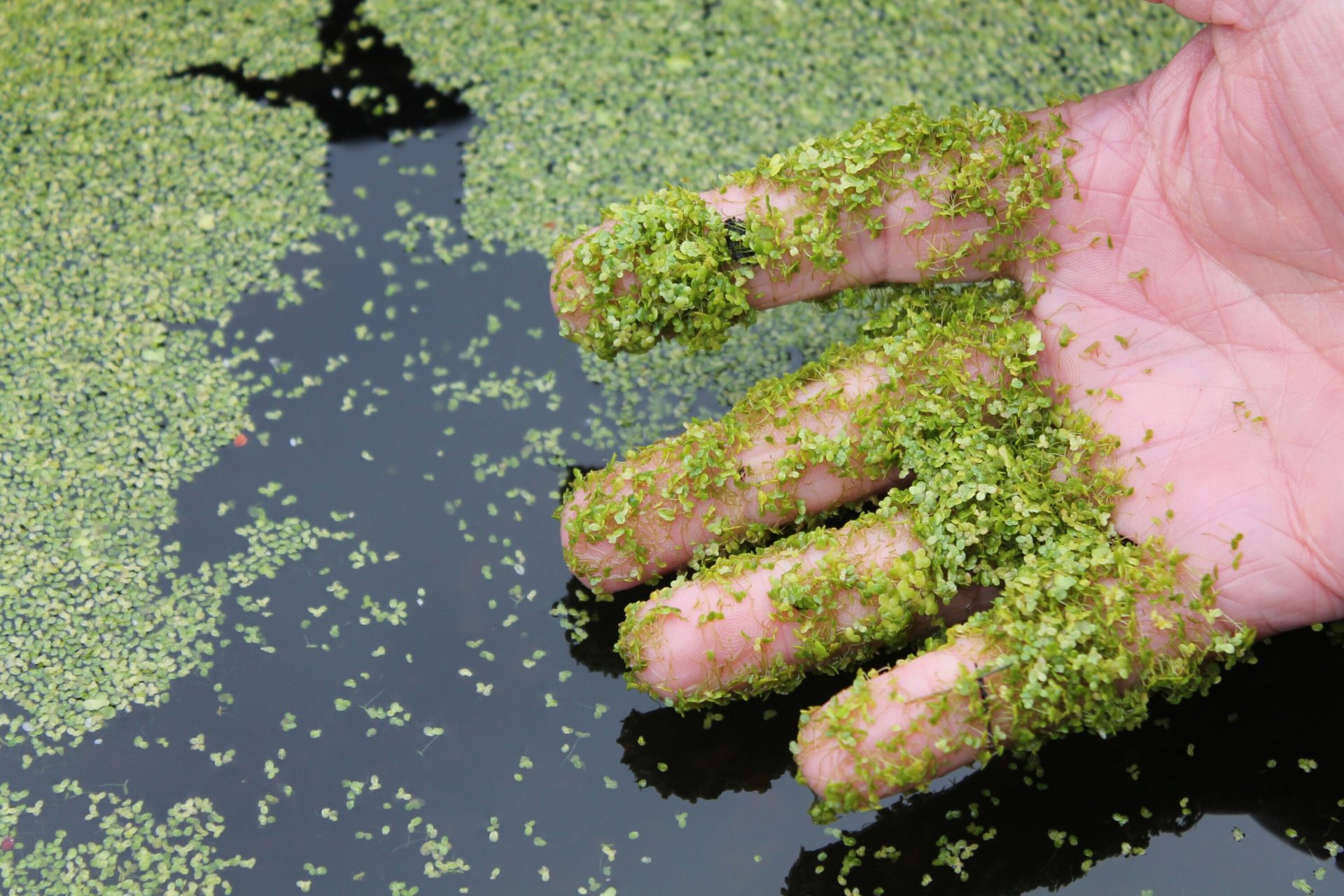Duckweed (Lemna species) can completely cover areas of still or slow-moving water, causing problems in ponds and lakes. The following information and advice will help you control this invasive weed.
Duckweed grows best in nutrient-rich waters and is common in both small garden ponds and large bodies of water.
It is a small, floating, aquatic perennial which can spread to form a green ‘carpet’ on the surface of the water. Often the plants consist of a group of 3 small floating leaves, usually not exceeding 0.5cm (¼in) in diameter (and similar to “mustard and cress” leaves) with slender white roots just below the surface of the water.
Duckweed was once sold by garden centres but this is now considered unwise due to its invasive nature. However, it is often introduced to ponds by aquatic birds (hence its name) or by other wildlife, or can be carried in on new aquatic plants.
Whilst a small amount can be attractive it grows incredibly quickly, mainly by vegetative growth with new plants budding from the adult plants, and can soon cover a pond. This can then lead to de-oxygenation of the water which causes problems for fish and wildlife and it is easily spread to other bodies of water by visiting wildlife.
Although Duckweed usually dies off in winter, several species will produce spores in the autumn which over-winter on the bottom of the pond, and then create new growth in the following spring. It’s therefore important to treat or remove the duckweed before this occurs.
Controlling Duckweed in Ponds
There are no chemical products available which will kill Duckweed in garden ponds so it is extremely difficult to eradicate, but it can be controlled so that it does not cause problems by covering the entire pond.
Ecopond Duckweed Control is a non-chemical treatment containing a bacterial culture that removes nutrients from the water to suppress duckweed growth. As much Duckweed as possible should be removed prior to use (this can be composted after leaving it by the pond for a few hours to allow wildlife to crawl back in) and then a weekly dosing regime followed until growth has stopped. Ecopond Duckweed Control can be used at any time from Spring to Autumn when temperatures are high enough (approx 10 degrees) to encourage good bacterial activity.
Additional methods of control include:
- On small ponds regular removal with a net can keep the weed under control but this needs to be done regularly as the plant can regenerate on a daily basis.
- On larger pools a floating boom can be used to sweep from end to end.
- Stop-boards can be fitted at any upstream inlets to prevent duckweed entering large ponds or lakes.
- Introducing grass carp, which will eat Lemna species, can help in large ponds
- Having other plants within the pond is important as they will compete for available nutrients and space.
Duckweed is less likely to grow in moving water so a fountain or re-circulating pump can help to prevent it.
If you would like advice regarding a duckweed problem, you can email [email protected] with your query, including pond dimensions.
